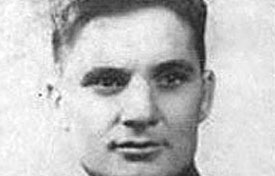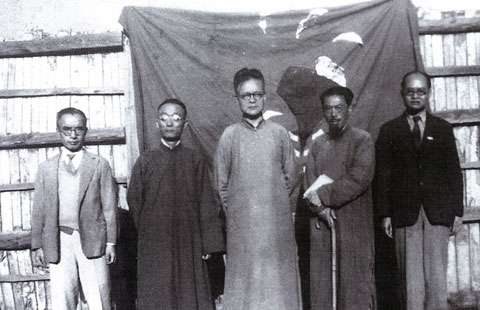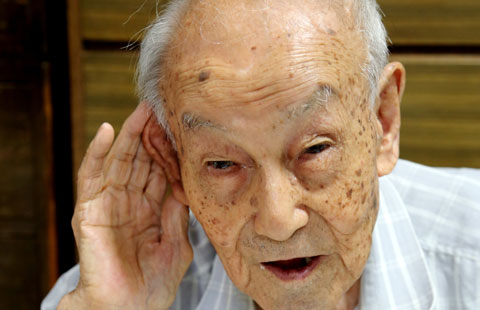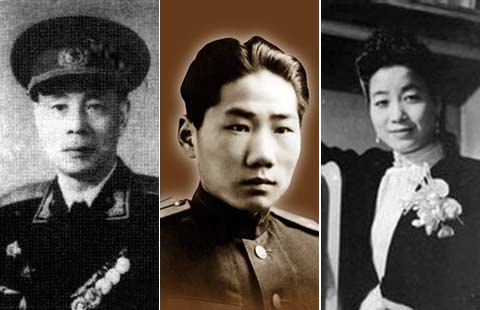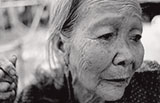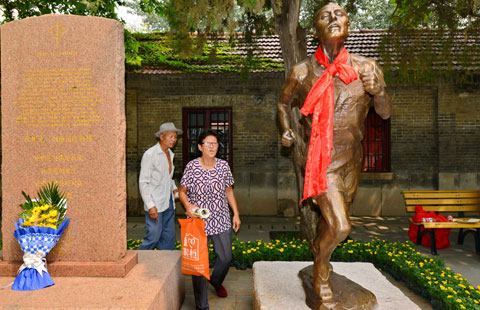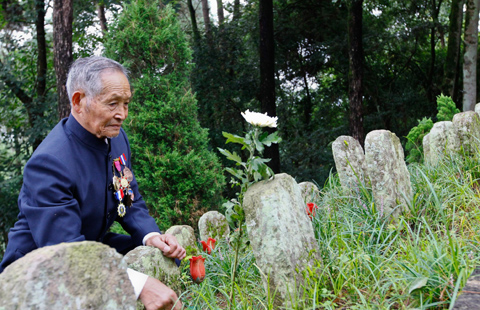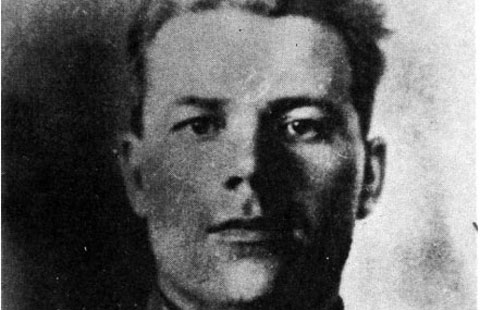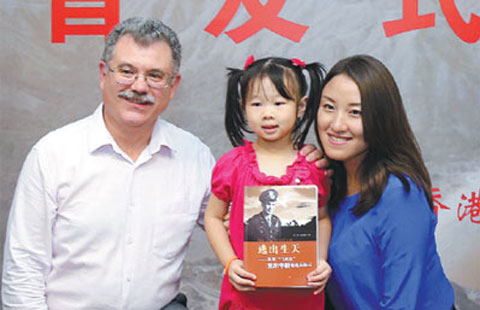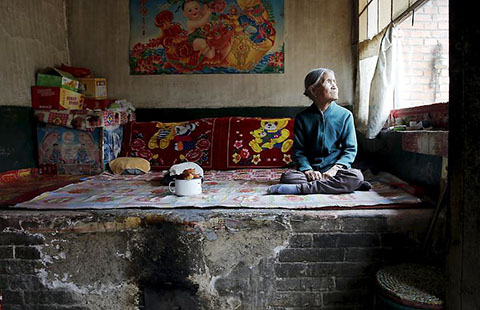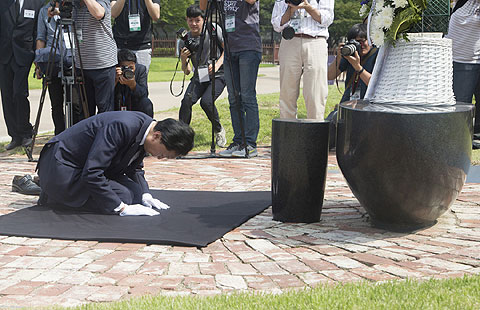Soviet pilot who risked his own life to help China
[2015-08-25 16:40]A Soviet pilot, nicknamed aerial tank, helped China shoot down 7 Japanese aircraft during the War of Resistance against Japanese Aggression.
Scholars protected nation's wartime education
[2015-08-25 07:44]Over eight years in Hunan and Yunnan provinces, Chinese masters in all subjects gathered at NSAU, producing two future Nobel Prize laureates and eight scientists who were to work on the atomic bomb.
Finding a family in fog of war
[2015-08-24 07:48]Thousands of former 'war orphans', Chinese-born Japanese children left behind when their parents returned to Japan in 1945, have spent their lives attempting to find their true antecedents.
From Japanese soldier to Chinese hero
[2015-08-24 07:48]Hirosumi Kobayashi was thrilled to showoff his invitation to the ceremony to mark the 70th anniversary of China's victory in the War of Resistance Against Japanese Aggression.
Chinese heroes in the Soviet Union's Great Patriotic War
[2015-08-20 10:35]China and the Soviet Union were firm allies in the war against fascism and militarism, forming a bond forged with blood and sacrifice in World War II. Many Chinese devoted themselves to the battle against the German fascists at crucial, difficult times in the Soviet Union's Great Patriotic War.
'Comfort women' still waiting for apology
[2015-08-20 08:17]Women raped during wartime in Hainan province are still awaiting an apology from Japan, even though most of them are now in their 80s.
Chinese city salutes a very British hero with a statue
[2015-08-19 16:44]Scottish missionary and Olympic gold medallist Eric Liddell died in the Weihsien Japanese internment camp in Weifang in February 1945 and is revered by many local Chinese as a hero.
The beginning of the end
[2015-08-19 09:46]The victory in Tengchong, Yunnan province, was anything but easy. Chinese and Japanese armies engaged more than 40 times in 127 days.
Soviet captain helped China fight against Japan's invasion
[2015-08-17 17:45]A Soviet soldier died a martyr's death in southwestern China’s Chongqing having devoted himself to the Chinese People's War of Resistance against Japanese Aggression.
US pilot is remembered in book and documentary
[2015-08-15 08:03]
A documentary and a book in Chinese recounting the exploits of a US fighter pilot who parachuted to safety in Hong Kong after shooting down a Japanese warplane during World War II will ensure that his heroic deeds are not lost to posterity.
Comfort women: Scars have not been healed
[2015-08-13 17:58]"Comfort women" is the Japanese euphemism for women who were forced into prostitution and sexually abused at Japanese military brothels before and during World War Two.
Japan should apologize to victims for aggression
[2015-08-13 09:48]Japan's former prime minister Yukio Hatoyama said he expected current Prime Minister Shinzo Abe to face up to history, admit Japan's aggression and apologize to the victims during his statement marking the 70th anniversary of the end of the World War II.
